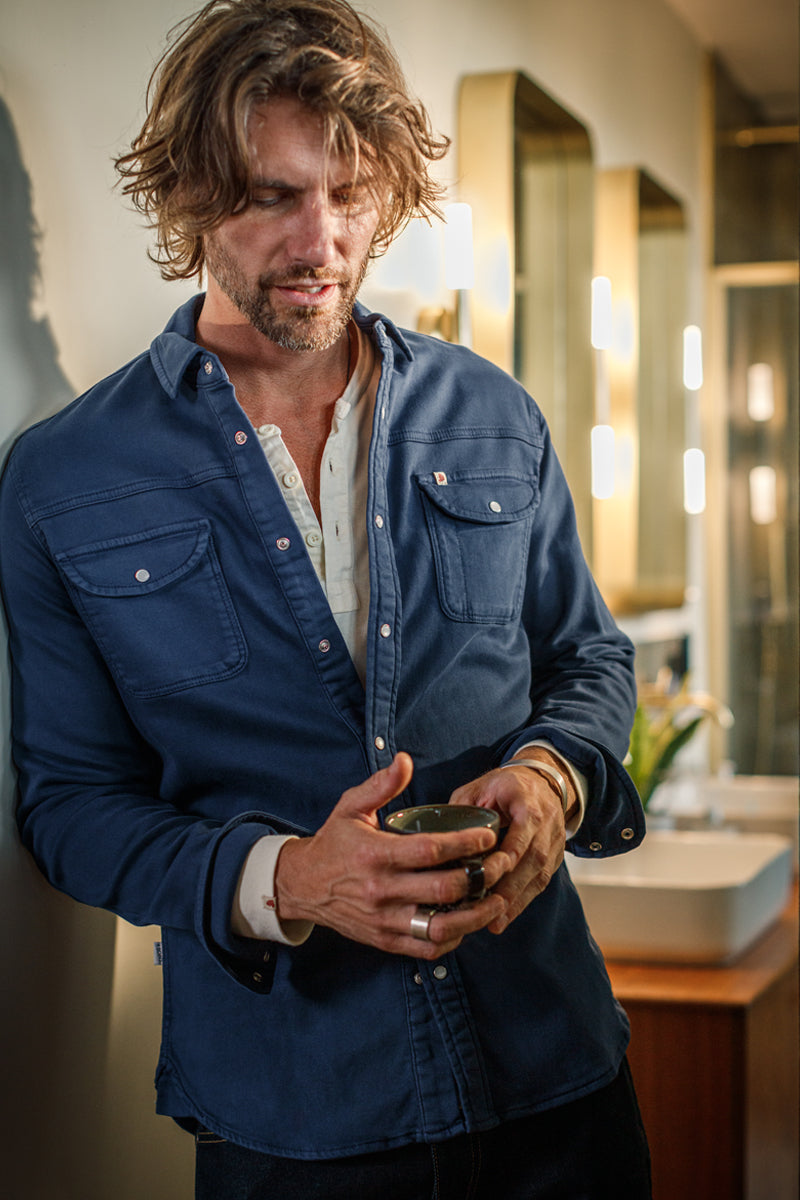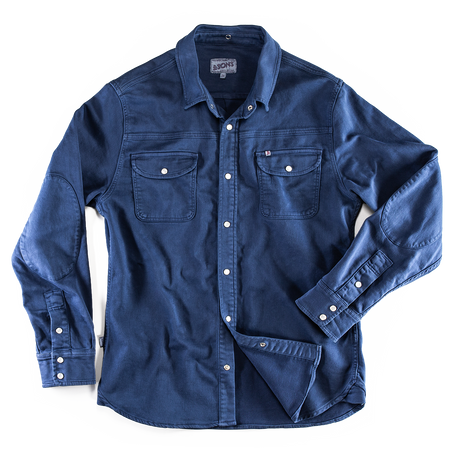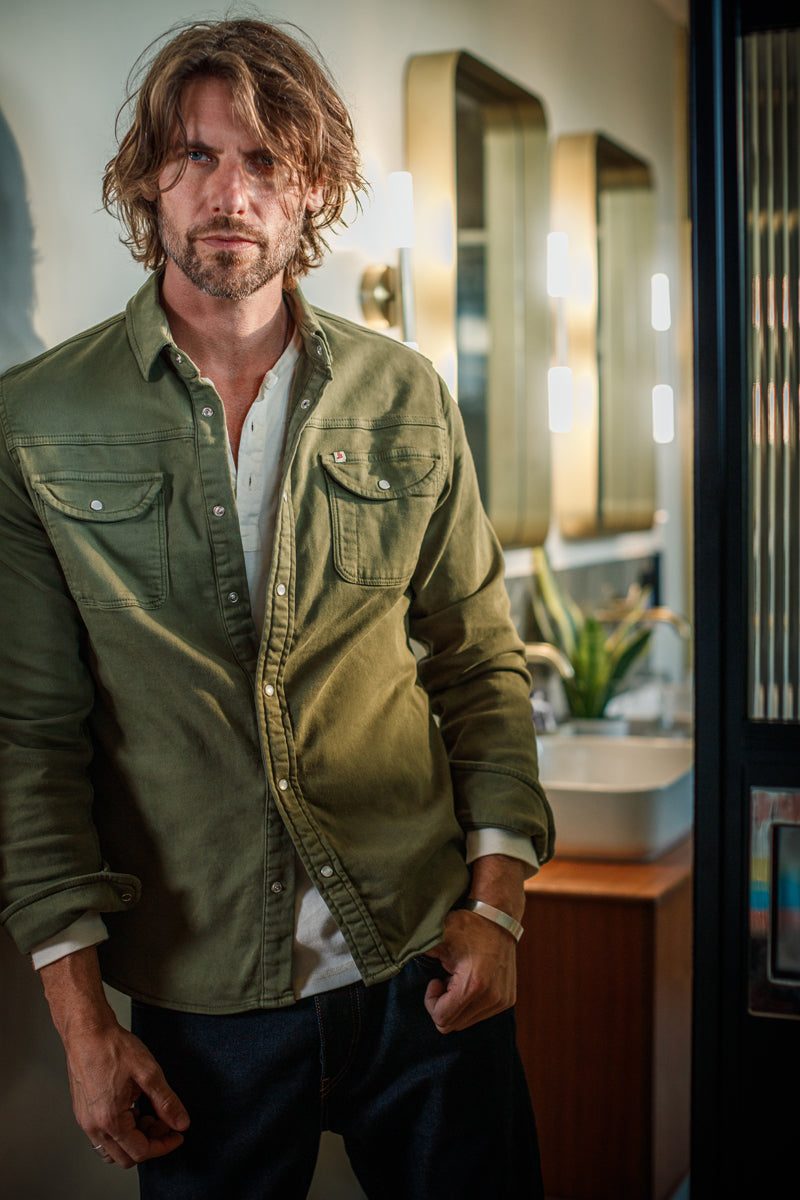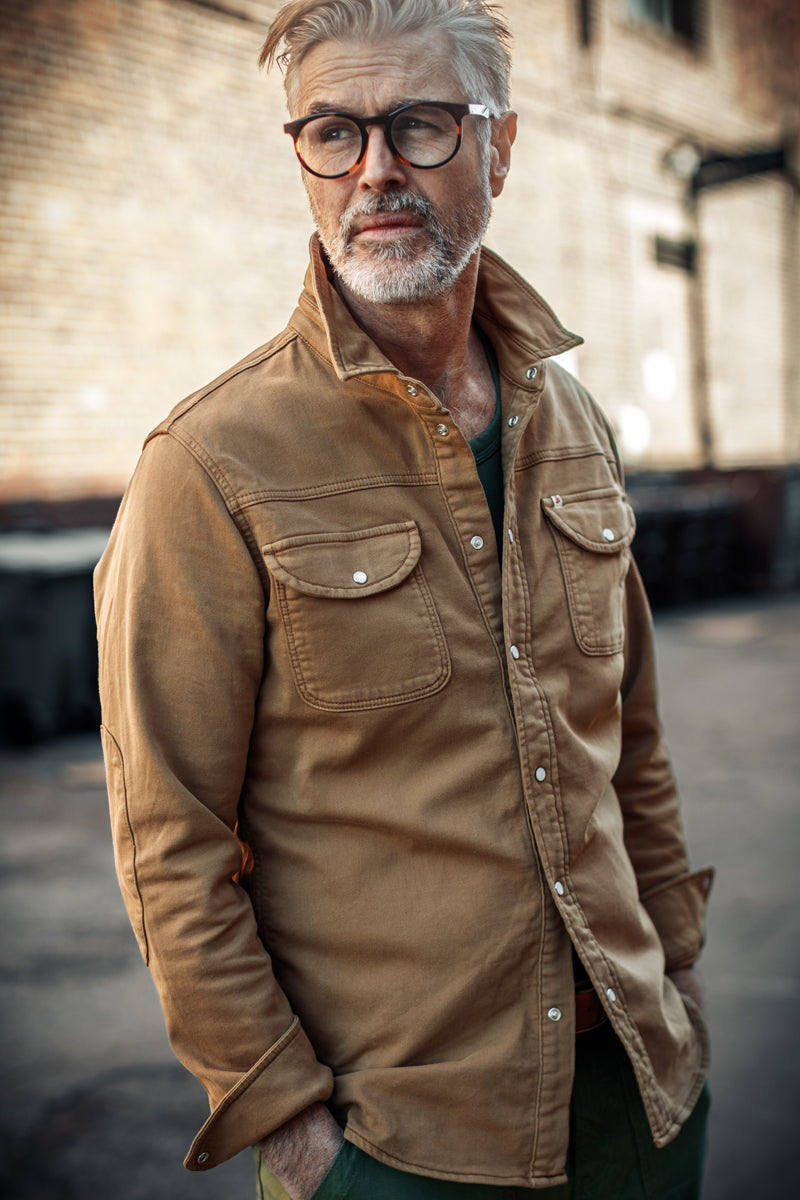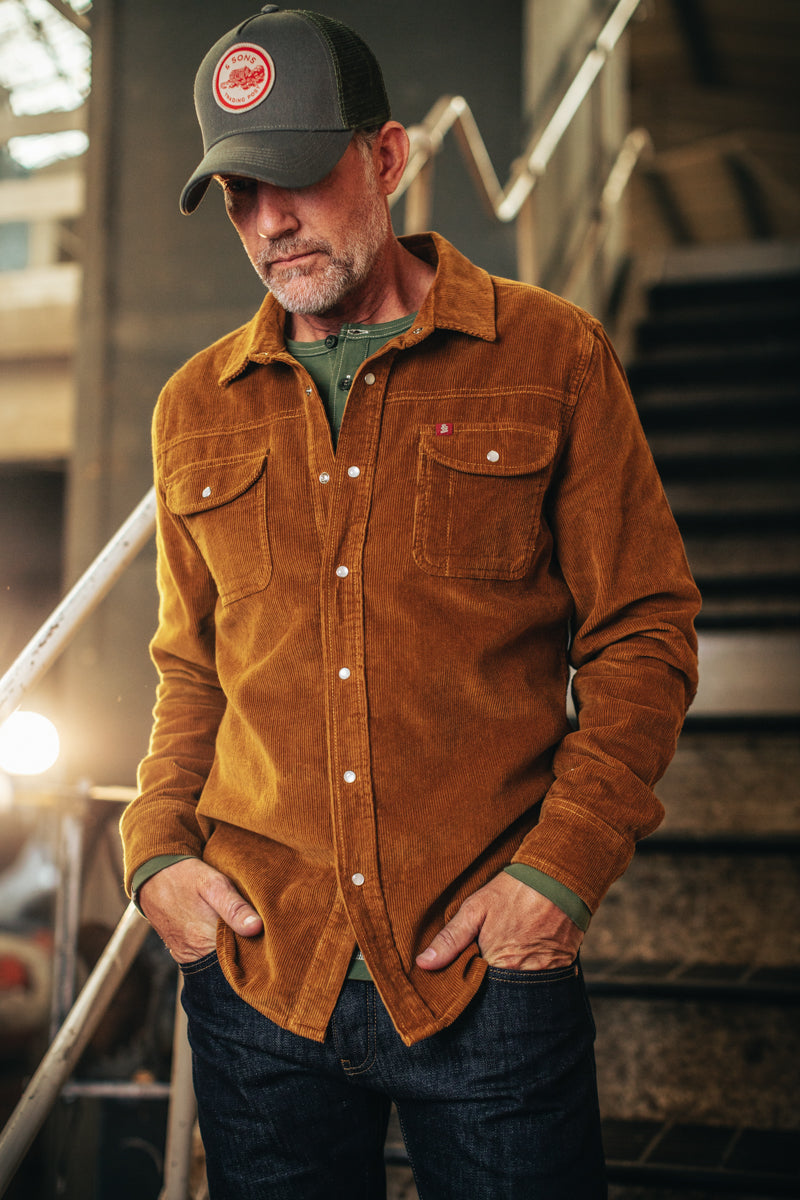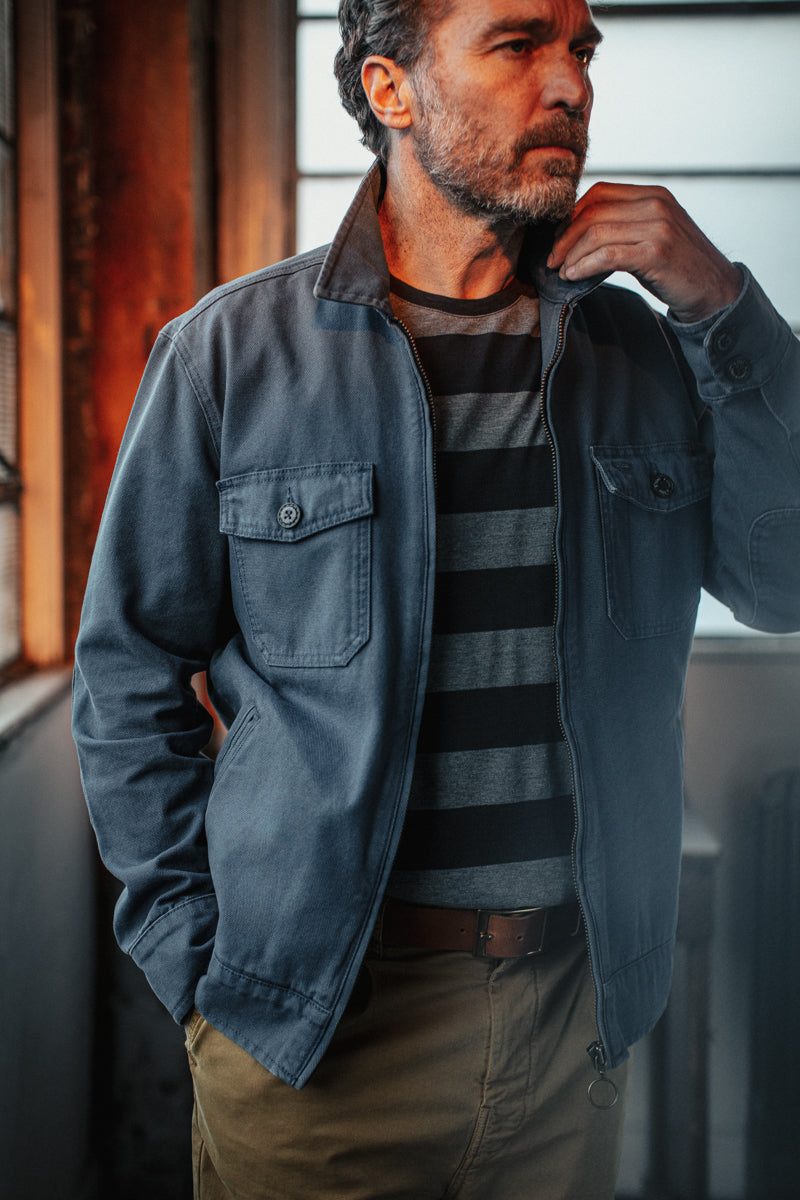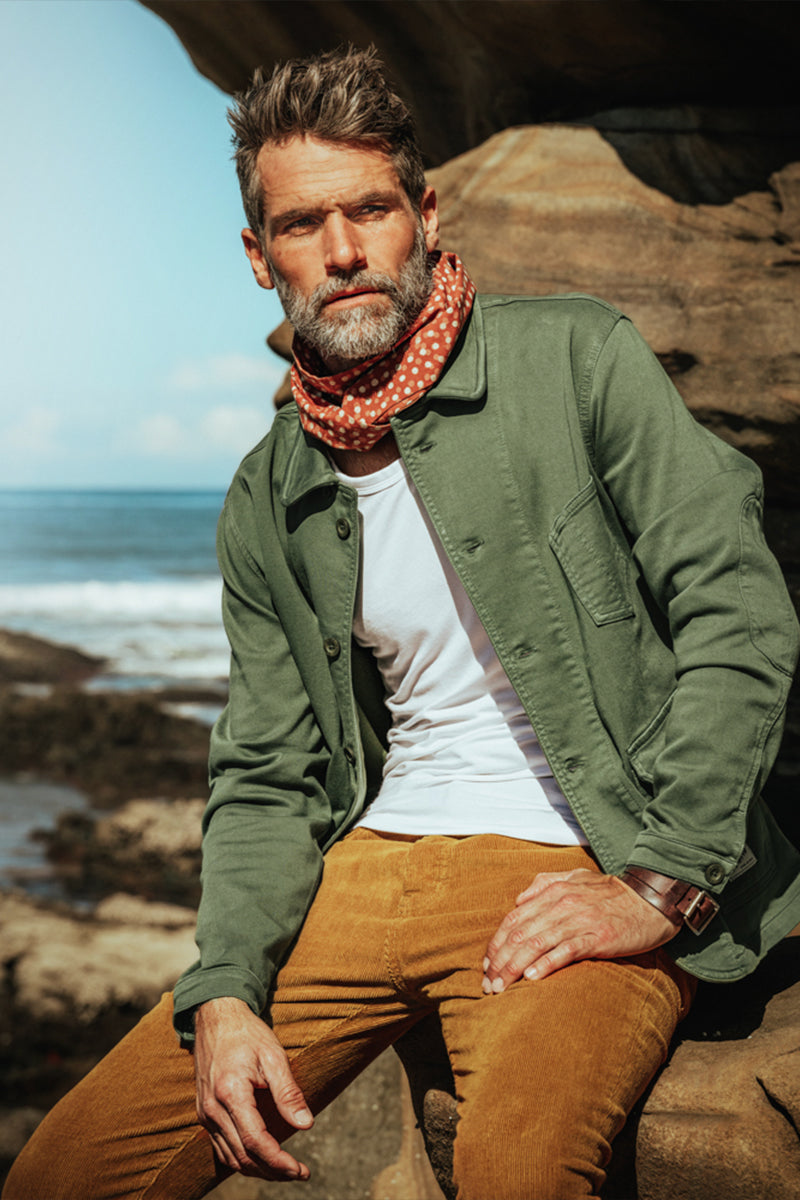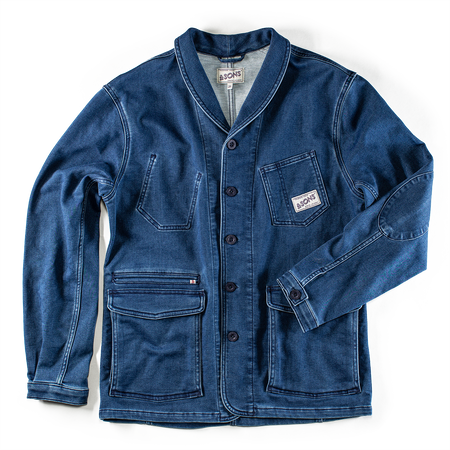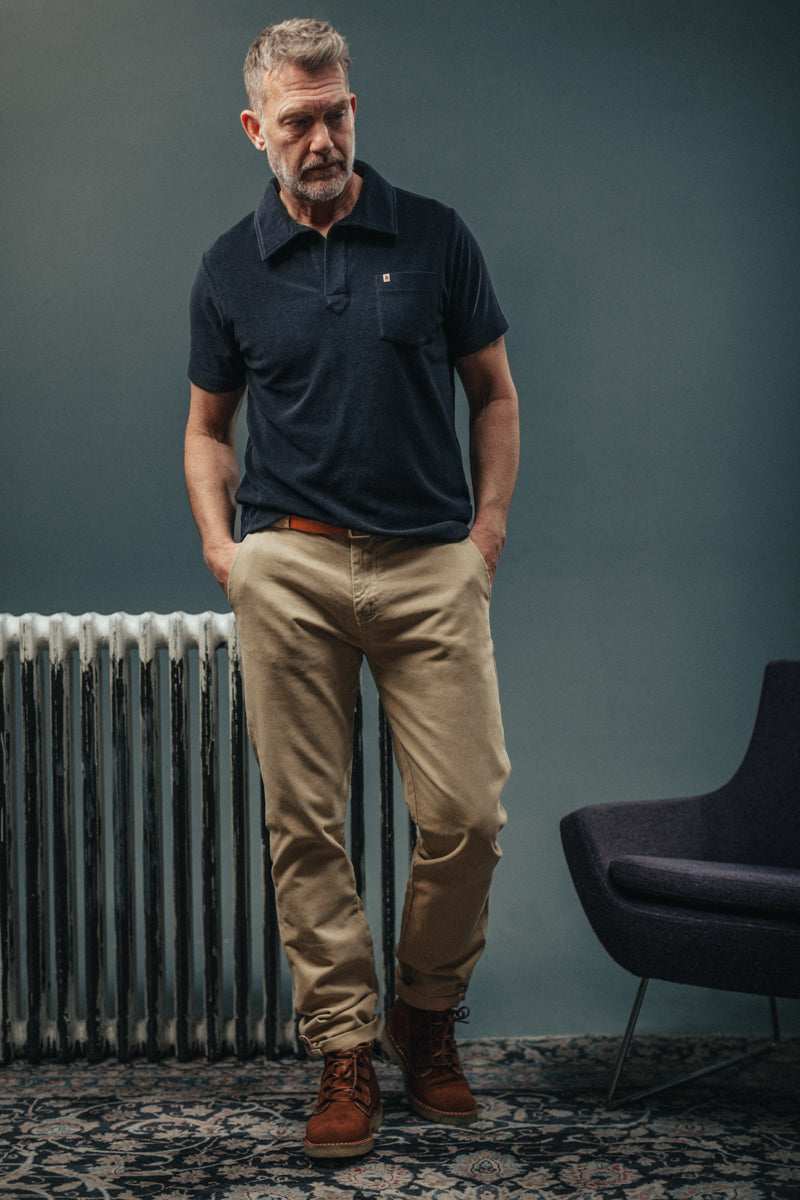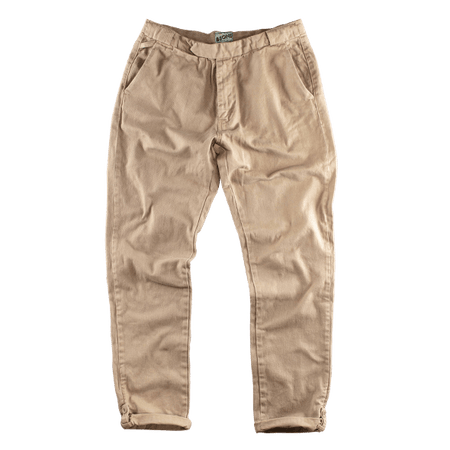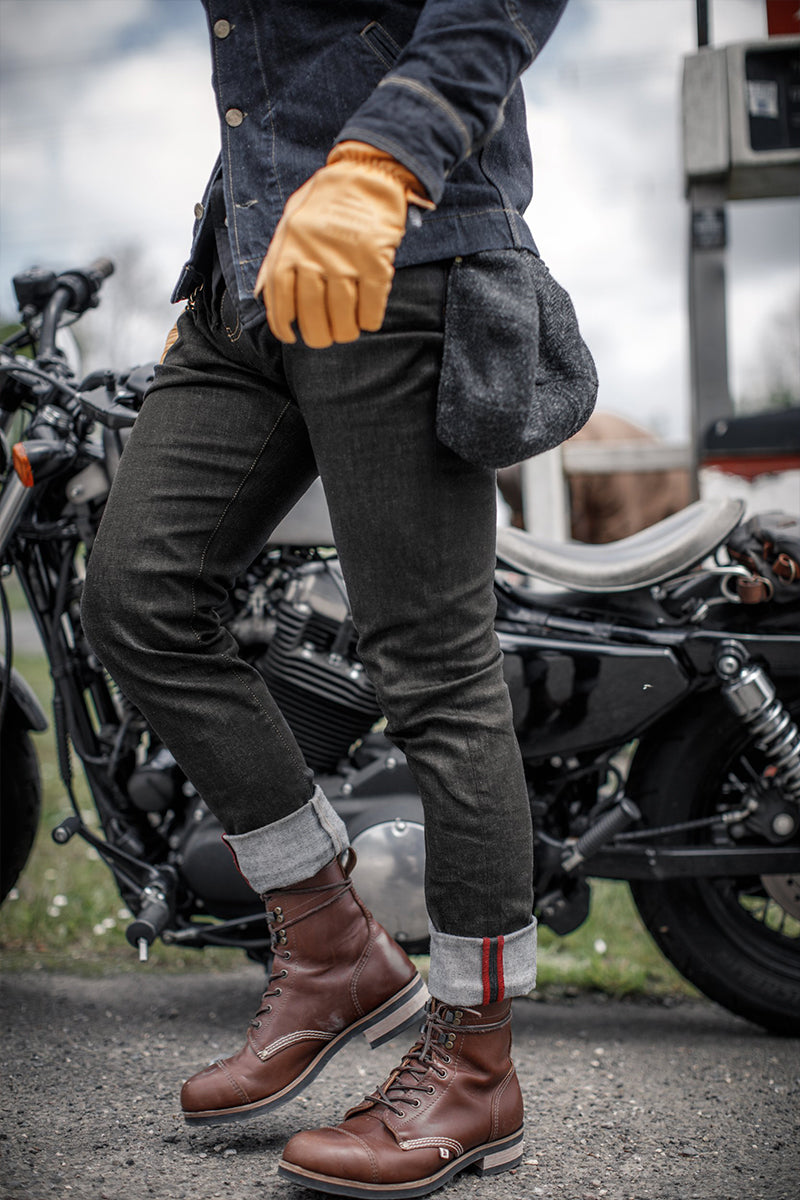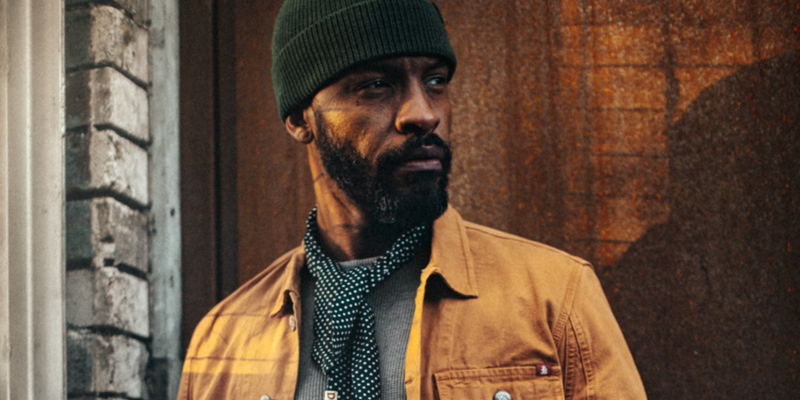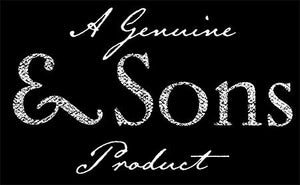Interview and photography by Chris Nelson


CEO Cameron Schaefer and The Vinyl Revolution


Do you know what “crate digging” is? If so, you might have a good assortment of vinyl records sitting at home, and if not, then you’ve likely never experienced the joy of crouching in a dimly lit corner of a second-hand shop, thumbing through a clutter of dusty milk crates stacked full of old and often obscure LPs. “Crate digging” is one of the most fruitful and least frustrating aspects of collecting vinyl records, which at times can feel like a wearisome hobby, because it's always an experience when dropping the needle on your turntable, turning up your speakers, sitting back in your favourite chair, and listen to the A-side of a big polymer disc with beautifully composed symphonies, funky disco club beats, or horrendous wails and howls cut into its grooves.
“Crate digging” isn’t for everyone, though, and many collectors prefer that someone else do the digging and curate records on their behalf, which is why so many audiophiles trust in Denver, Colorado-based company Vinyl Me, Please (VMP). Founded in 2013, VMP started off as a “record of the month” club, mailing out lesser-known vinyl gems every four weeks to about a dozen subscribers. VMP serves over 85,000 music lovers from more than 50 countries around the world, and each month allows its “record of the month” members to select an exclusive pressing from one of four categories: Essentials, Classics, Hip-Hop, or Country. Last year alone, VMP shipped about 750,000 records, which is why this summer VMP is opening a world-class record-pressing facility in the hip RiNo neighbourhood of downtown Denver.
The CEO of VMP is Cameron Schaefer, who has been with the company since its earliest days and has worked tirelessly to turn this once passion project into a thoroughly and thoughtfully built business that remains chaste as it grows and pushes through the narrow cracks of an established music industry. We sat down with Schaefer at VMP’s unfinished pressing plant to discuss his love for music, how he ended up at VMP, and why he thinks vinyl records offer the best, more satisfying listening experience.
Chris Nelson: For this interview in the &SONS “Pioneers” series, I want to discuss your business and how you helped grow Vinyl Me, Please (VMP) into what it is today, but I feel like I should start by recognising that you come from a long line of true pioneers.
Cameron Schaefer:
Yeah, I’m a fourth-generation Wyomingite, where my family way back were homesteaders before it was even a state. My dad's side of the family had a dairy farm in Lusk, Wyoming, but I grew up in Laramie, not working on a ranch or a farm or anything like that.

Why did music become such a definitive part of your life?
My dad left Lusk, Wyoming to attend the University of Wyoming and major in music performance as a trombonist. He also minored in music history, going deep into the history of the trombone. He was an incredible musician and ended up where he could play just about anything. One of his stories that blows my mind is that The Righteous Brothers were touring throughout the Midwest, and their trombonist got sick. They looked around frantically for a replacement and ended up, for whatever reason, finding my dad. After that, he did a stint in the Philadelphia Philharmonic over a summer and then ended up as a high school band director in Laramie. When he showed up for his first, something like 40 or 50 kids came out to try out for the band, and my dad basically said, “Hey, this is too small to make a real proper marching band, so until you all come back with two friends, we're not even going to start. I don't care if they can play an instrument or not … I'll teach them.” Within two weeks, he had over 120 kids, and within three or four years, that band won a world marching band competition in Vienna, Austria, and then was invited to play President Nixon's in D.C. It was kind of like Mr. Holland's Opus story, but then weirdly at the height of that, he gave it up and went to law school, and became a lawyer; I've never gotten a complete answer from him to explain why he walked away.

Was your mom a musician, too?
My mom was an incredible pianist, not professional or anything, but she just loved it and played her whole life. My dad met my mom when he was still in high school. Between the two of them, they had a great record collection; my dad had almost all jazz and classical, and my mom had more doo-wop and pop from the late 50s through to the late 60s. At the end of the night, my parents would pick records that we’d listen to as a family, and as I got older, they just let me pick whatever I wanted to listen to.

What are a few of the records with the fondest memories for you?
My dad had some great operas, so I remember being introduced to “Madame Butterfly” on vinyl. We’d also listen to trombonists J.J. Johnson and Curtis Fuller; I don’t remember listening to like John Coltrane or Miles Davis, only the niche, niche stuff. My mom really liked The Ventures and Manfred Mann— “Do Wah Diddy Diddy,” you know?

When did you branch out from your parent’s record collection and discover new music for yourself?
Sometime in middle school, a Hastings store opened in Laramie. In the early to mid-'90s, CD culture was huge, and if you lived in a town with a big mall, you'd go to Sam Goody and drop, like, $18 on a new CD, but for us it was Hastings. The first CD I bought was En Vogue’s “Funky Divas.” When I was old enough to drive around in my Pontiac Grand Prix, I remember cranking “Intergalactic” by The Beastie Boys—that was a jam—and was really into the artists on No Limit Records, like Master P and Silkk the Shocker; I loved that their albums came in colourful neon cases. After picking up Blink-182’s “Enema of the State,” I kind of launched into my alternative and punk phase, with The Reverend Horton Heat, The Vandals, Me First and The Gimme Gimmes, and the like. Then a girl that I had a crush on really liked Nine Inch Nails, so at some point, I went down the Nine Inch Nails rabbit hole. I think two bands that really rocked my world when I was in middle school were Pearl Jam and Rage Against the Machine. To this day, my favourite Pearl Jam album is “No Code,” which is not the normal one that people would favour, but by far it’s my favourite.
After middle school and high school, you attended the Air Force Academy. Did your music tastes continue to grow and evolve?
I went to the Air Force Academy from 2002 to 2006, and it coincided with Apple’s introduction of the 99-cent download. In high school, Napster had come out, and we all did that and thought it was amazing, though now I feel sort of embarrassed or ashamed to say it. There was a thrill to having access to all this music, but looking at hard drives full of music, I realized how empty it was, so I decided to do the “right” thing and started buying songs on iTunes, rabidly. At the academy, your freshman year is kind of brutal, and you're not really allowed to leave the campus, so you are constantly holed up in your room. But I had my government-issued laptop with iTunes, so I spent hours and hours each weekend going down the iTunes “recommendation algorithm,” finding new artists. I'd just sit there for hours, just listening to artist after artist. That was kind of a weird therapy, in some ways, like a soothing way to kill a weekend, you know? After I graduated, I started flying overseas in C-17s, with 24-hour shifts and a crew of three rotating pilots. A lot of times I was back in the bulk of the crew area, listening to my iPod for hours on end, and then in 2011 I transferred to Las Vegas to remotely pilot MQ-1 Predator RPAs, or “drones” as most people call them, and that’s when my love for vinyl records returned. I reconnected with a buddy from the academy who had a massive record collection, and I ended up going to his house a bunch to listen to records, and he was introducing me to all kinds of bands that I didn't know and loved. So that really sparked something in me, like, “Oh, I want to get more into this.” For years I'd been carting around my parents’ record collection but hadn’t listened to them, so I bought a turntable and started buying records like crazy. I’d get tax-free combat pay while I was out flying around and would basically allocate a lot of that for buying records. I'd be overseas buying records, and then I'd get home and have, like, 30 records waiting for me.
As enthusiastic as you were about music, how did that passion turn into a profession?
In 2012, I started a Tumblr blog called “Vinyl & Cocktails.” I’d pick an album, listen to it, make myself a drink, and then write about that experience. It picked up a small following and in February of ’13, I got an email from these two guys, Matt and Tyler, who had just started a record-of-the-month club called Vinyl Me, Please (VMP), and wanted help spreading the word. I was a bit sceptical, seeing how I was a full-time pilot, but the guys said every month they’d send me a free record, so I agreed. From that point on, it was all serendipity. I wanted to get out of the military but still had like four or five years left on my commitment until the Air Force announced that they were overmanned and were allowing people to get out early without any retirement or any long-term benefits, so I did that. Soon after, both Matt and Tyler quit their jobs and moved to Boulder, Colorado to pursue VMP full-time. Had everything not happened as it did, that would’ve been the end of the road for me and VMP, but here I am.

When did you first get the itch to be an entrepreneur?
I’ve always been entrepreneurial, even as a kid. As much as I enjoyed growing up in Laramie, I had a vivid awareness that there was a much bigger world out there. Like a lot of kids, I had my own lawn-mowing business, with 20 or 30 lawns that I'd mow; my mom would drive me around and drop me off at the houses with a little tow-behind trailer. Then being in the military, I learned that I'm not a fan of working within a huge bureaucracy. While there's safety and security in doing so, you kind of do the same thing every day, and I didn't like the fact that I couldn't see a direct link between what I was doing and the effect on the overall organisation. I came away from that feeling like I wanted to work for a small enough company where I could see the cause-and-effect of my job. I think I had that in the back of my mind even starting that Tumblr blog, because I didn't think it was going to become a business, but it was the kind of thing I needed to be doing.

How did you come up through the ranks of Vinyl Me, Please?
At first, I ran all the marketing and social media for $400 a month, which was fine since at the time I was making a good living as a captain in the Air Force, and really none of us thought VMP was going to become a full-time business. I was reading everything I could about social media, which at the time felt more novel and less tired than it does now, and through that I learned what it means to build a brand that communicates well online and shows up digitally. I was listening to so much music that I started having more influence on the records that we were picking, and in July 2014 my role morphed into a full-time job, which is when I started travelling to New York and Los Angeles to build our industry relationships because we had none and none of us worked in the music industry. We didn't know anything, we didn't know what a distributor was, we didn't know how to get in contact with labels or who we were supposed to talk to at labels. For a few years, I spent a lot of time building up a kind of Rolodex for VMP, trying to explain what we were doing and to find support. That was a crucial thing for me because I went into that situation very aware that I was an outlier because the music industry is incredibly insular. I remember lots of times when I was talking about myself, or VMP, I would do it in kind of a jokey manner, almost like, “Isn't this crazy? Isn’t this funny?” And I remember very vividly a moment where I was talking with some older label folks who had been in the industry 20 years, and they got weirdly emotional when I was talking to them and said, “Look, you guys are building something that we wanted the music industry to be, so we are rooting for you to succeed … keep doing what you're doing.” It hit my heart, and I realized that this self-deprecation was, in a way, disrespectful to them.
And that’s probably when you said to yourself, “VMP might turn into a real business.”
Yes, exactly. It’s crazy to think that this year, Vinyl Me, Please turned 10 years old. If you look at it purely as a record club, we're the leading record club in the world for what we do, but now I look at it more as both a brand and a community that we built, centred on exploring music together. Too often these days, you’re trading the human analogue experience for digital convenience, and at VMP we recognize this tension exists in the world. At VMP, we're doing our best work when we're facilitating journeys through music that lead to those tangible and transcendent experiences because we believe that music is more than bits and bytes. These sounds frame your memories and over time shape your life. That's what we're about now, and we've been able to solidify our identity, and now we're more of a respected and known name in the industry, so we get a lot more amazing opportunities thrown our way from artists, labels, management, and different brands who want to work with us.


And how does building a record-pressing plant in downtown Denver factor into what you’re trying to achieve?
We’re opening a 14,000-square-foot, audiophile-grade pressing plant in downtown Denver, because we want to press the highest quality records in the world, and we feel like vinyl, is the best medium to explore music. And frankly, the artists and the customers deserve it. We want to treat music with a sacredness, where you do care about every little detail in the package, and we felt like the only way to do that on the product level was to take it into our own hands. We also want to do it in a way that people can come and walk through and see how records are made and experience that in a way that isn't intimidating. I think that's one of the been one of the issues with vinyl in general: it can be quite intimidating for people to get into. It will be a fun and enjoyable experience for anyone who says, “I love music, I want to explore it more deeply.” It is a tremendous blessing, but also equally weighted by a feeling of responsibility, because the music industry needs this.
What is the appeal of vinyl records?
For me, it's the tangible nature of the medium. Obviously, CDs and cassette tapes are tangible. But I think that there's something very pleasing for a human to hold up a vinyl LP, the size of it is just more conducive to an enjoyable experience. Like, I don't think anyone ever picks up a CD jewel case and feels inspired. I've talked to so many musical artists who basically say it wasn't until their album was on vinyl when they were holding it in their hands, that it felt like they’d made an album.

It can’t just be the size and the presence of a vinyl LP that attracts you, because if it was, you’d have a LaserDisc player in your living room.
Well, the tangibility of a vinyl record comes with a ritual. Like, you don't normally take the time to put a record on the turntable for background noise. It lends itself more to listening as the primary activity. Very rarely do you go home and say, “I'm going to sit down, pour myself a glass of bourbon, and listen to my Spotify playlist.” Vinyl lends itself to the foreground and makes listening your primary activity. And then I think the reality is— and I intentionally mention this one last— that a vinyl record’s sound quality is the best. There have been decades of debate on this, and it’s funny to me because people who grew up on early vinyl say, “Oh, I love the crackle and the whatever,” and I'm laughing in my head, like, “Well, it shouldn't sound that way.” That means the record has not been taken care of, or it's there's dust on it or something. The reality is if you go through the full process of recording something to tape, at a great studio with a great engineer, having a mastering engineer go straight from tape to cutting the lacquer, and then made into stampers, and pressed on machines by someone who also knows how to press a record— to me, it is the best listening experience outside of live music.

When I drop the needle on one of those records, I love nothing more than hearing dead silence, and that’s why I'm excited that leading the charge at our pressing plant is Gary Salstrom, who is known for making records that are just dead silent. I remember one of the first times he pressed for us, when I dropped the needle on a test pressing and sat down, there was no sound, so I figured I must not have turned the volume up. As I was walking toward the turntable, the music kicked on, and it was incredible. So, sound quality is for sure a factor. People can do high-resolution digital recordings, but I don't think it sounds as real, and sometimes it sounds almost too perfect, but that’s subjective, which is why I leave sound quality last, unlike a lot of audiophiles who care about it most. From what I see, most people right now are starting to connect or reconnect with vinyl, not because of the sound quality but rather because they have something physical that reminds them of a memory or a time in their life or makes them feel a certain way. In a world with everything being digital, coming from a screen, I think more and more people are gravitating toward tangible experiences because it makes them feel more human.

